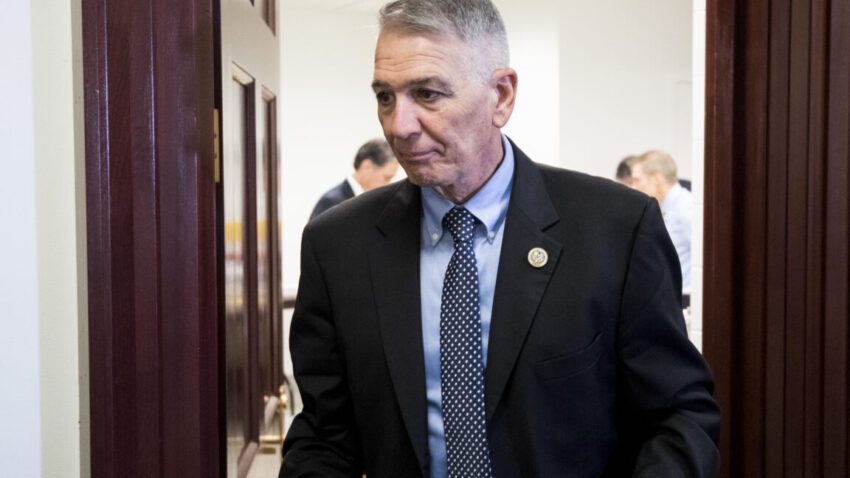
rfk jr s new cdc deputy director Robert F. Kennedy Jr.’s appointment of Louisiana Surgeon General Ralph Abraham as the new principal deputy director of the Centers for Disease Control and Prevention (CDC) has sparked significant controversy and concern among public health experts.
rfk jr s new cdc deputy director
Background on the Appointment
The CDC, a pivotal agency in the United States responsible for public health and safety, has recently come under the leadership of Health Secretary Robert F. Kennedy Jr., known for his strong anti-vaccine stance. This new appointment of Ralph Abraham, who has a history of controversial public health decisions, has raised alarms regarding the future direction of the agency.
Physician Jeremy Faust first reported the news in his newsletter, Inside Medicine, where he highlighted that the choice of Abraham was met with mixed reactions. While some experts labeled the appointment as “dangerous” and “irresponsible,” others noted that it could have been worse, given the names that were reportedly considered for the position. A source within the CDC indicated to Faust, “I heard way worse names floated,” suggesting that while Abraham’s views may not align with mainstream public health recommendations, his experience in managing a public health system could be a mitigating factor.
Ralph Abraham’s Public Health Record
Despite the potential for relevant experience, Abraham’s track record as Louisiana’s Surgeon General raises significant concerns. Under his leadership, the Louisiana Department of Health faced criticism for its handling of a deadly whooping cough (pertussis) outbreak. Reports indicate that the department delayed informing residents about the outbreak for several months, a decision that could have had serious implications for community health and safety.
Moreover, Abraham’s public statements regarding vaccines have drawn scrutiny. Earlier this year, he openly expressed his preference for “natural immunity” over COVID-19 vaccines in an interview with a Louisiana news outlet. This perspective is particularly troubling given the scientific consensus on the importance of vaccines in preventing serious illness and controlling infectious diseases.
Impact on Vaccination Campaigns
Abraham’s approach to vaccination has also been controversial. In February, he issued an order to halt the Louisiana health department’s promotion of mass vaccinations, including flu shots. This directive not only undermines public health initiatives aimed at increasing vaccination rates but also contradicts the recommendations of numerous health organizations that advocate for widespread vaccination as a means of preventing outbreaks.
Furthermore, Abraham’s decision to bar staff from conducting seasonal vaccine campaigns raises questions about the state’s commitment to public health. Vaccination campaigns are critical in educating the public about the benefits of immunization and in increasing vaccine uptake, especially in vulnerable populations. By limiting these efforts, Abraham may be jeopardizing the health of Louisiana residents.
Expert Reactions
The appointment of Ralph Abraham has elicited a range of reactions from public health experts and organizations. Many have expressed concern that his anti-vaccine stance could influence CDC policies and undermine efforts to promote vaccination as a key public health strategy. The CDC has historically played a crucial role in addressing vaccine hesitancy and ensuring that the public has access to accurate information about vaccines.
Dr. Ashish Jha, former dean of the Brown University School of Public Health, commented on the implications of Abraham’s appointment, stating, “The CDC needs leaders who prioritize science and evidence-based public health practices. Appointing someone with a history of anti-vaccine rhetoric sends the wrong message at a time when trust in public health is already fragile.”
Concerns Over Public Trust
Public trust in health authorities is paramount, especially in the wake of the COVID-19 pandemic. The CDC has faced criticism for its handling of the pandemic, and the appointment of a deputy director with a history of controversial views could further erode public confidence in the agency. Experts warn that if the CDC is perceived as endorsing anti-vaccine sentiments, it could lead to increased vaccine hesitancy and a decline in vaccination rates.
In a statement, the American Academy of Pediatrics (AAP) expressed its dismay over the appointment, emphasizing the importance of evidence-based practices in public health. “We need leaders who understand the critical role vaccines play in protecting children and communities. This appointment raises serious concerns about the future direction of the CDC,” the AAP stated.
Broader Implications for Public Health Policy
The implications of Abraham’s appointment extend beyond the CDC and could have lasting effects on public health policy in the United States. As the country continues to navigate the challenges posed by infectious diseases, the need for strong, science-based leadership in public health has never been more critical. The CDC’s role in shaping vaccination policy and addressing public health crises is vital, and any shift away from evidence-based practices could have dire consequences.
Moreover, the appointment reflects a broader trend in which public health leadership is increasingly influenced by political ideologies rather than scientific evidence. This shift raises concerns about the future of public health initiatives and the potential for increased polarization around health issues.
Potential for Policy Changes
With Ralph Abraham at the helm as principal deputy director, there is a possibility that the CDC may adopt policies that align more closely with anti-vaccine sentiments. This could manifest in various ways, including reduced funding for vaccination programs, changes in public health messaging, and a lack of support for initiatives aimed at combating vaccine misinformation.
Furthermore, the appointment may embolden other public health officials to adopt similar stances, leading to a fragmented approach to vaccination and public health across the country. The consequences of such a shift could be felt in the form of increased outbreaks of vaccine-preventable diseases, which have already seen a resurgence in recent years due to declining vaccination rates.
Conclusion
The appointment of Ralph Abraham as the new principal deputy director of the CDC under Robert F. Kennedy Jr. has raised significant concerns among public health experts and organizations. While some argue that his experience in managing a public health system could be beneficial, his history of anti-vaccine rhetoric and controversial public health decisions raises alarms about the future direction of the agency.
As the CDC navigates the challenges of public health in a post-pandemic world, the need for evidence-based leadership has never been more critical. The implications of Abraham’s appointment could extend far beyond the agency itself, potentially influencing public health policy and vaccination efforts across the United States. The coming months will be crucial in determining how this leadership change will impact public health initiatives and the trust that the public places in health authorities.
Source: Original report
Was this helpful?
Last Modified: November 27, 2025 at 6:38 am
1 views















